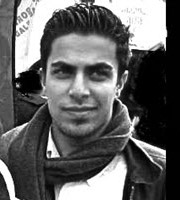
By Hamid Yazdan Panah
Last month a shocking story gained little traction in the mainstream press, despite its horrific implications and brutal reality. A report from Iran emerged which detailed how every male from a village in the province of Sistan Baluchistan had been executed. The Baluch, an ethnic minority in Iran, continue to face systematic repression and discrimination, yet they remain largely ignored in both the East and the West. The Baluch in Iran remain victims of institutional discrimination, state violence, and intense poverty.
The executions in question took place in the village of Roushanabad, in South Eastern Tehran, with the entire male population being arrested and sentenced to death on drug charges. Incidentally, Sistan Baluchistan is Iran’s poorest province, and home to the ethnic Baluch who remain disenfranchised in Iran both as an ethnic minority and as Sunni Muslims.
The execution of the entire population of a village is not only shocking, but is reminiscent of medieval policies enacted by conquering armies to subdue native populations. Not only should these executions be condemned as horrific forms of state sanctioned violence, but can be thought of as part of a policy of genocide against the Baluch. This term is particularly relevant when taken into the broader context of Iran’s discriminatory policies towards the Baluch and their culture.
Ethnic Baluch are routinely unable to educate their children in their own mother tongue. The unemployment rate in Sistan Baluchistan is thought to be five times the national average. It is no coincidence that investment and development in Baluchistan rank lowest in all of Iran, while executions, poverty and drug addiction ranks highest.
According to Ahmed Shaheed, the UN special rapporteur on human rights in Iran; “The province … experiences a high rate of executions for drug-related offences or crimes deemed to constitute ‘enmity against God’ in the absence of fair trials.”
The majority of those executed in the province faced drug charges, and often receive convictions without access to counsel or proper due process. Iran’s use of the death penalty in such cases is illegal under international law, yet the practice not only continues, but is actually funded by the United Nations and European countries.
For the Baluch residing in these villages, smuggling remains one of the only viable sources for income, in a country where they are often equated as lower class criminals. The disproportionate executions of Baluch in Iran is an obvious indication of this reality. One which begins at an early age for Baluch youth. In fact, Iran’s vice-president for women and family affairs herself remarked, “Their children are potential drug traffickers as they would want to seek revenge and provide money for their families. There is no support for these people.”
The situation of the Baluch in Iran is a case study on the failures of human rights and international outcry in a world saturated with injustice. The regime in Iran continues a policy of death against ethnic and religious minorities, including Kurds, Azeris and Arabs. Unfortunately the Baluch remain the most vulnerable of these groups, and remain largely invisible to the international community. Simply having their voices heard remains a major struggle for this stateless population faced with poverty, violence and discrimination.
Hamid Yazdan Panah is an Iranian-American human rights activist and attorney focused on immigration and asylum in the San Francisco Bay Area.


